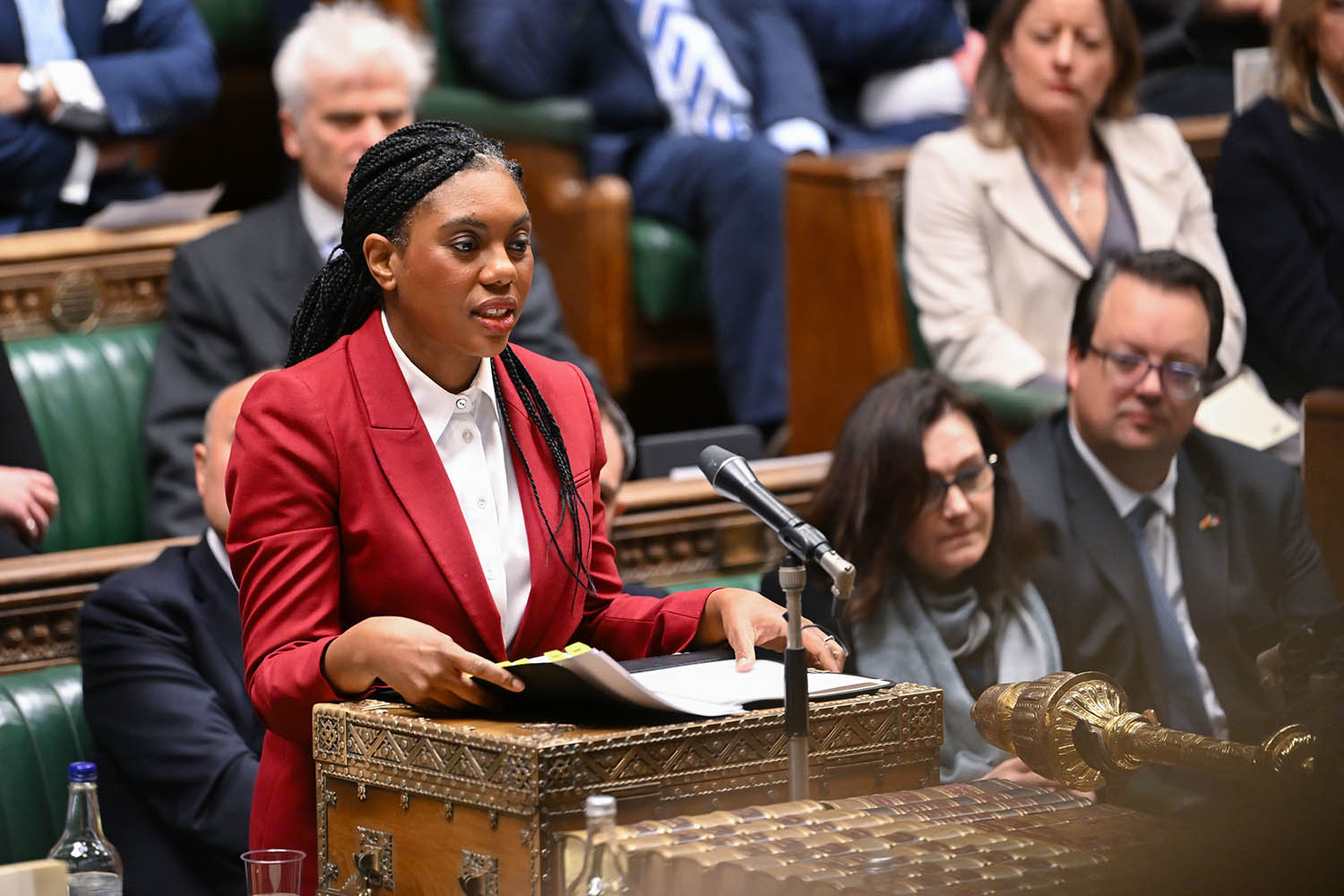With friends like Mel Stride, Kemi Badenoch does not need any more enemies. For those of you who may be understandably fuzzy about the composition of the Tory team, Sir Mel Stride is the shadow chancellor and the second most important personage in the Conservative hierarchy. Commenting about his embattled leader, he compared her struggles to be taken seriously with those faced by Margaret Thatcher in her first year as opposition leader and suggested that: “She will get better through time. At the media she will get better through time and at the dispatch box.”
Long gone are the days when anyone could say that “loyalty is the Tory party’s secret weapon”. As it happens, I think the shadow chancellor was genuinely trying to be helpful, but the effect of his remarks was to underline why so many Conservative MPs are in despair. Mrs Badenoch isn’t performing effectively on the media, she rarely lays a glove on the prime minister at PMQs, and she has squandered the love of the activists who gave her the leadership. They now place her bottom of the shadow cabinet league table.
She’s the flop of their pops. Arguing that she needs to be given time to improve puts the finger on one of her biggest problems. “Mrs Badenough”, as she is known to her crueller internal critics, is running out of road. She has been leading her party for more than six months and its fortunes have become palpably more dire. No one sensible thought it an easy job to relaunch the Tories after the most catastrophic general election defeat in their long history, but few Conservative MPs anticipated plunging into ever inkier depths of unpopularity.
The rout in the May local elections saw them lose every one of the 16 local authorities they were defending. A repeat of that pattern at next year’s spring polls will smash their base in another big chunk of England, and eviscerate them in Scotland and Wales. Labour has its own troubles, but the governing party retains the considerable power to command attention by setting the agenda. It is also enjoying a morale-boosting fillip from its victory in the Scottish parliamentary byelection, where the Tories came in a distant and dismal fourth. The funereal polls put them in the teens and sometimes they fall behind the Lib Dems.
More and more Conservative MPs mutter that it is becoming a case of when, not if, Mrs Badenoch is shown the door. Robert Jenrick, the hyperactive shadow justice secretary, was runner-up in last year’s leadership contest. With his viral stunt videos, he is essentially on the campaign trail already. One fellow Tory remarks: “Robert Generic is obviously on manoeuvres, waiting in the bushes, armed to the teeth.” James Cleverly, third last time, is out and about developing a pitch designed to appeal to more moderate Tories. Conservatives of a certain type even entertain thoughts of bringing back Boris Johnson, absurd as it may be to think that salvation is to be found in that scoundrel.
One of Mrs Badenoch’s mistakes has been to define her task as “slow and steady” recuperation. Conservative policy has been sent out to a series of reviews, the latest being into British membership of the European convention on human rights. Once upon a time, there might have been something to be said for sitting on the naughty step waiting for voters to forget why they so wanted to punish the Tories while hoping that disillusionment with Labour would gradually swing back support. But this is the 2020s, not the 1970s.
The red/blue pendulum has been broken by the surge in backing for Reform with its argument that the Tories and Labour are two faces of a failed status quo.
Nigel Farage’s party has its own issues. Zia Yusuf quit as party chairman after he said it was “dumb” of Sarah Pochin, Reform’s newest MP, to use her first intervention at PMQs to call for a ban on the burqa. Mr Yusuf, a wealthy entrepreneur and scion of Goldman Sachs, has played a pivotal role in the party’s success at the local elections. “They’ve lost their tactical genius,” says one veteran Tory. “They might have peaked, though I know this is a dangerous thing to say.” In classic Reform style, Mr Yusuf is now said to be returning to the party after the 48-hour hissy fit.
For all Reform’s explosive success, it is, as Faragiste outfits have always tended to be, rife with the bitter clashes of bloated egos. But if I were the Tories, I wouldn’t take any comfort in the thought that Reform might eventually sink under the weight of its divisions and contradictions. Seeking solace in the travails of other parties is a sure sign that you are not properly focused on your own.
I argued that when Mrs Badenoch became leader her first imperative should be to draw a line under her party’s past. It needed a landmark speech – a series of them, in fact – candidly acknowledging why the Tories have become so loathed by so many voters. The decks had to be cleared before the public might start to think it worth paying them any heed again. She has never made such a speech. There has been some expression of regret for the way Brexit was done, but not the fact of Brexit itself. She has acknowledged that her party repeatedly broke its promises to bring down migration. And that’s been it. There has never been any contrition for the serial debaucheries of the Johnson years. Nor regret for the madness of the brief reign of Liz Truss. The irony about Sir Mel is that the shadow chancellor was in front of journalists to deliver a speech repudiating Trussonomics and to swear that his party would never try that horror again. What he couldn’t quite bring himself to express was a full and frank apology. For the Tories, sorry remains the hardest word.
Newsletters
Choose the newsletters you want to receive
View more
For information about how The Observer protects your data, read our Privacy Policy
I am wary of pronouncing the last rites over the Conservative party. It has suffered terrible defeats, spent long periods in the wilderness and been declared buried before. Only then to reinvent, revive and re-establish itself as the dominant force. We may or may not be sitting at the death bed of the world’s oldest and historically most successful party. We are definitely moving closer to the point where a critical mass of Tories conclude that Kemi Badenoch has been given enough time to prove that she hasn’t got what it takes.
Photograph House of Commons/PA

